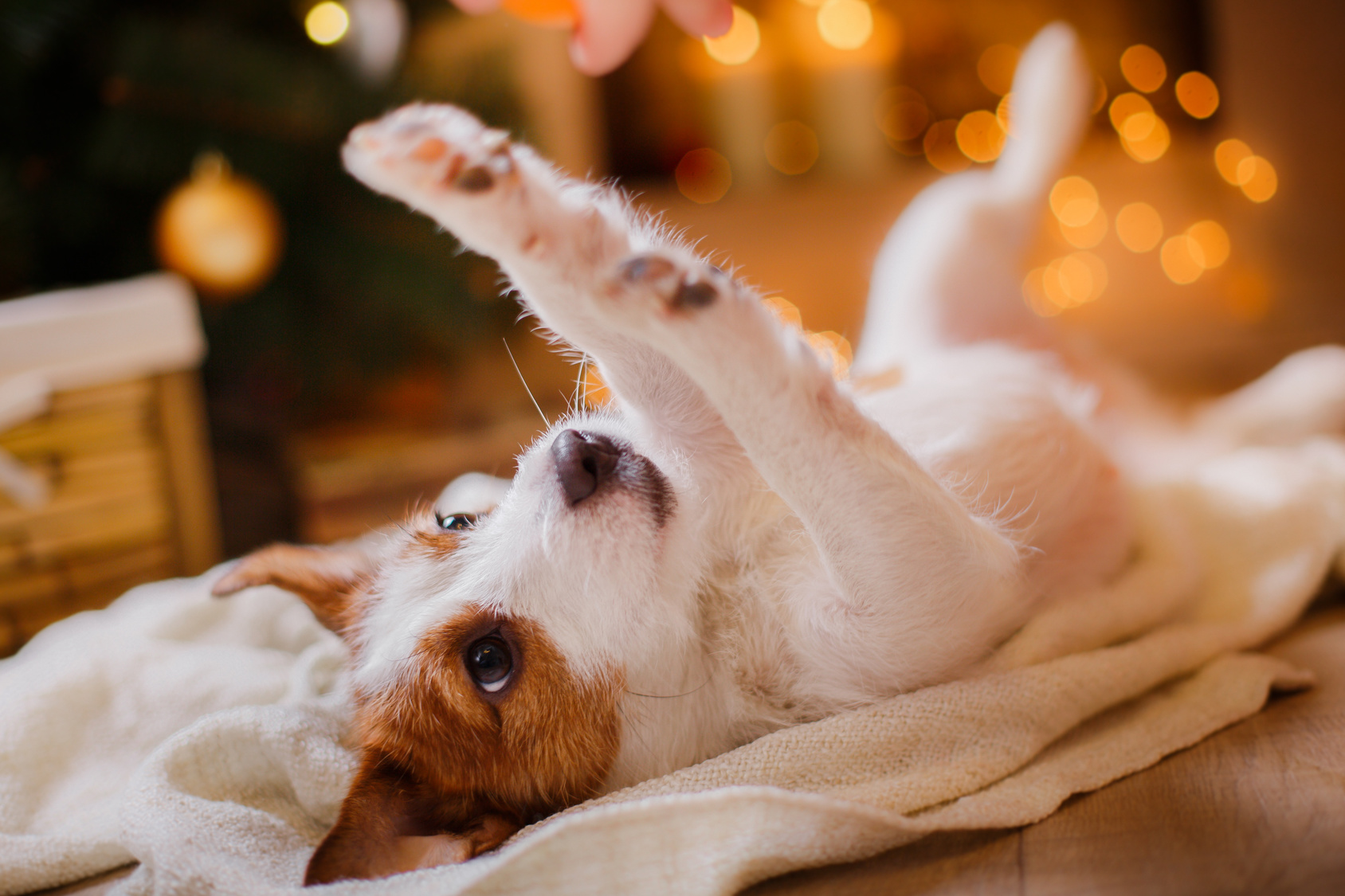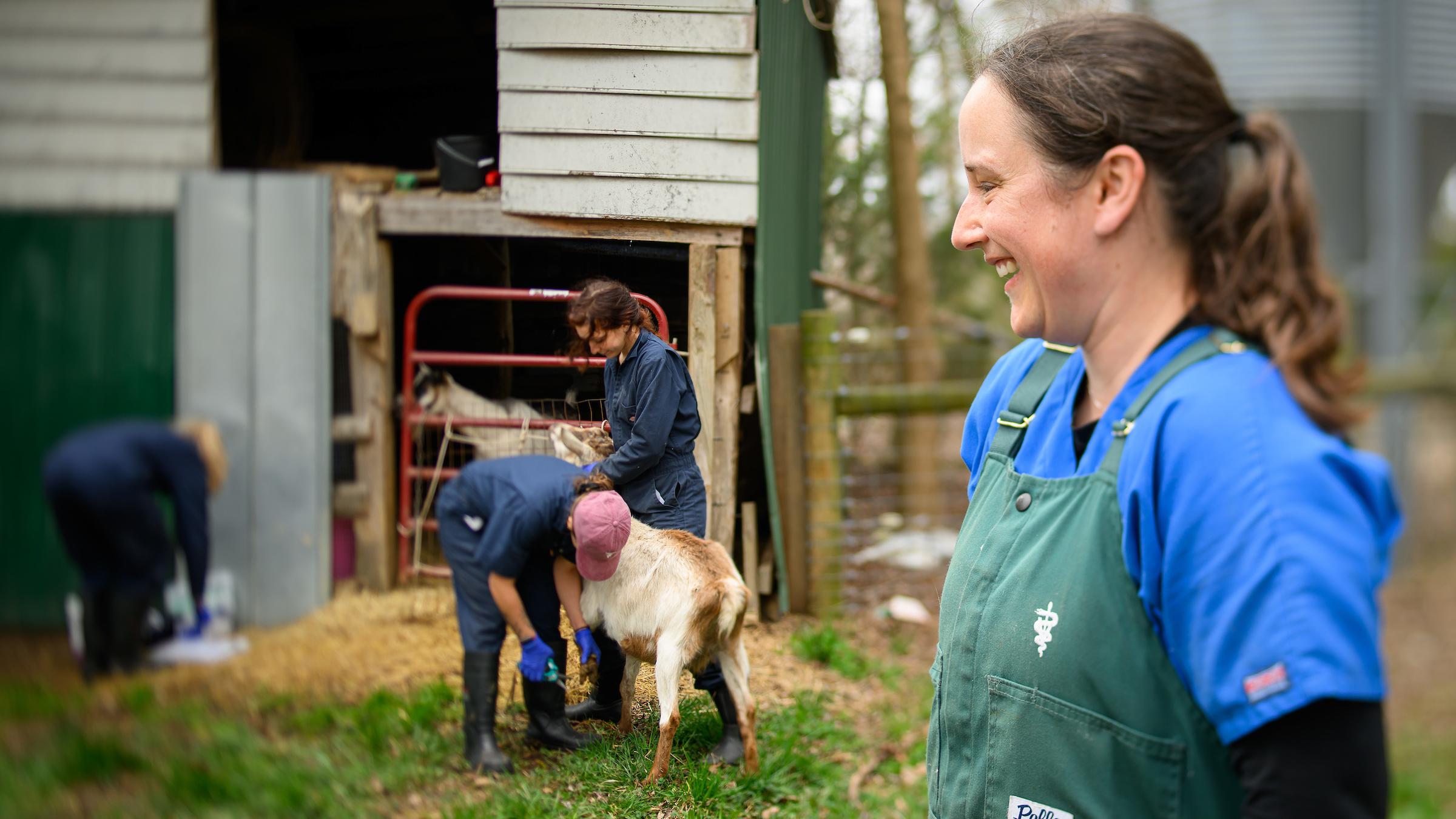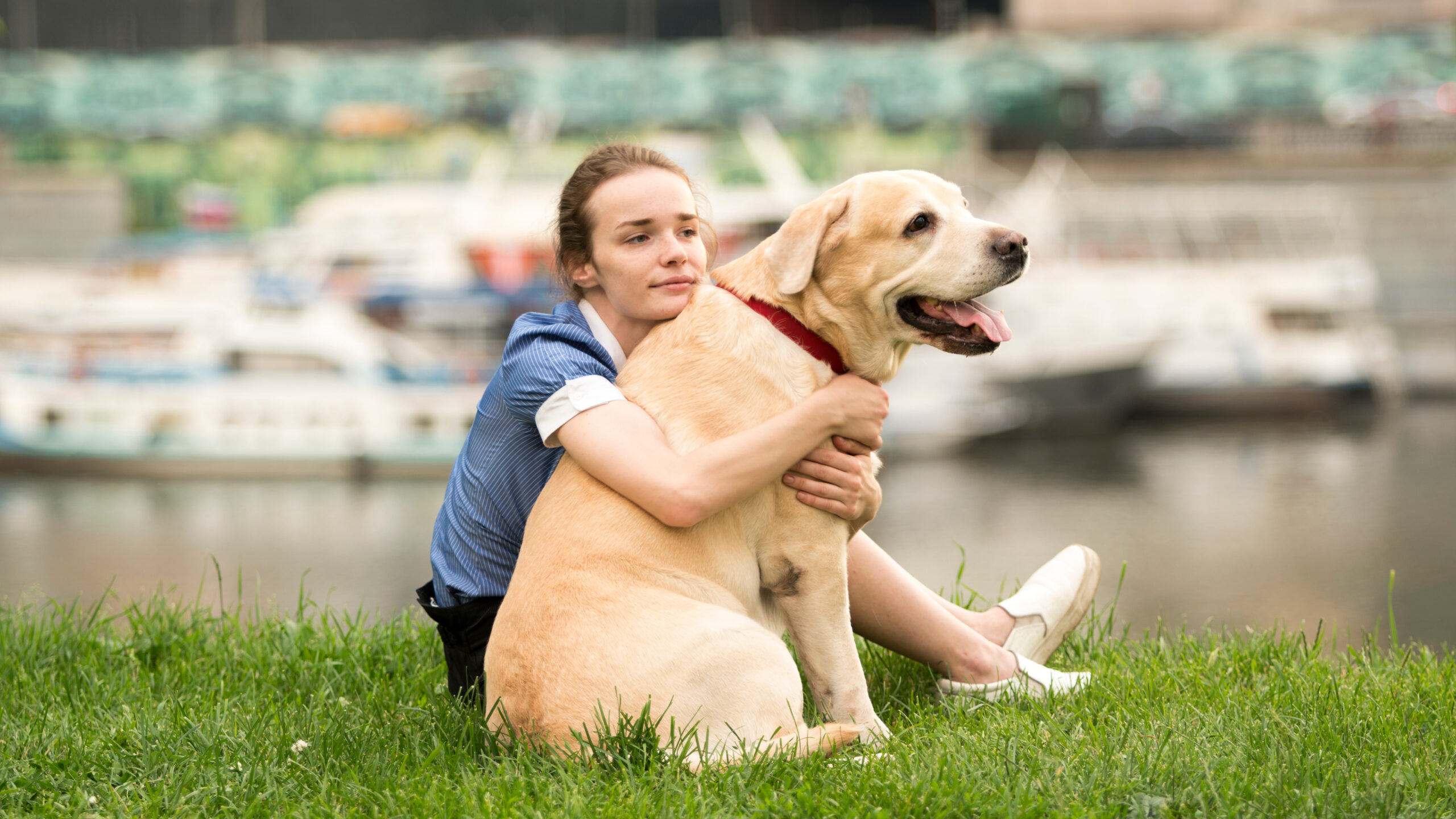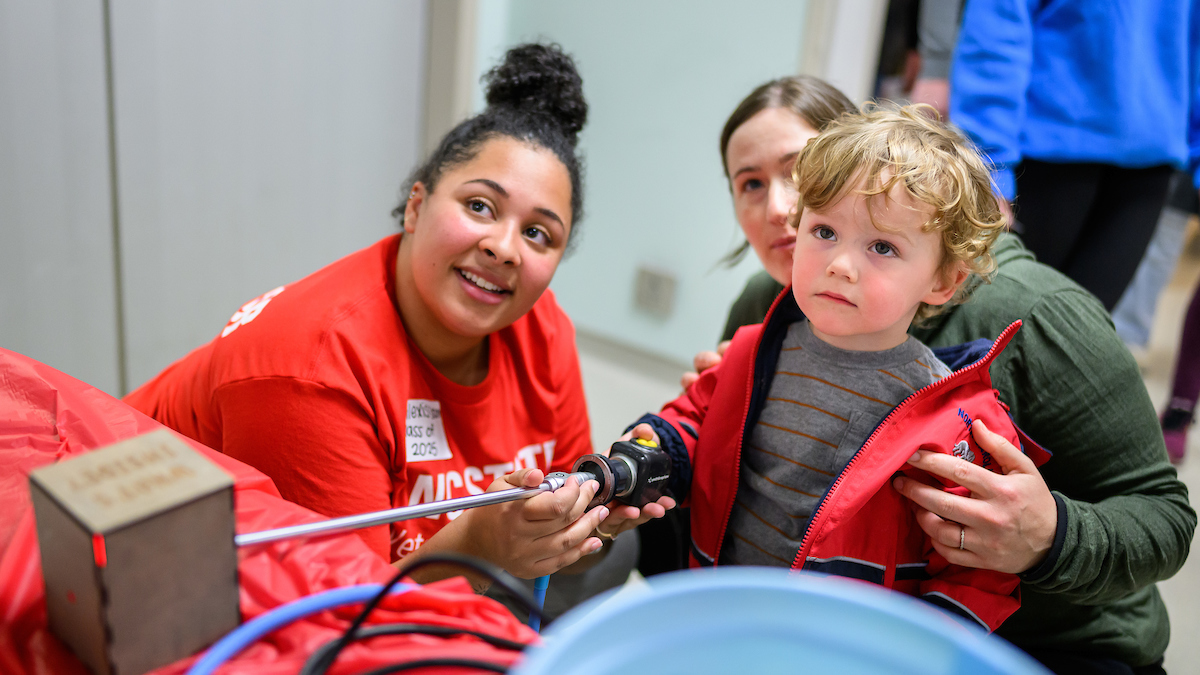Keeping Pets Stress-free for the Holidays

If you experience stress during the holidays, you’re not alone. Your pets may be right there with you.
Stress over the holidays can be common for house pets, says Barbara Sherman, clinical professor of veterinary behavior at the NC State Veterinary Hospital (VH).
“People who live with pets want their pets to have a good time,” says Sherman. “They want pets to participate in family gatherings. But there’s a lot going on over the holidays than can affect the overall mood of pets.”
A good starting point for pet owners, says Sherman, is thinking about how your pet generally behaves, its reaction to changes in both routines and the home environment, as well as how the pet interacts with strangers. That can help you formulate a game plan to minimize holiday pet stress.
Sherman, the director of the behavioral medicine service at the VH, which is part of the NC State College of Veterinary Medicine (CVM), outlines a few holiday stress triggers for pets and offers advice to make the season happy for all.
Holiday gatherings
[one_half]
Whether you’re hosting a Thanksgiving dinner or throwing a holiday party for a group of 50 friends, pets may be confused.
“They may say, ‘Who are these people and what’s going on?” says Sherman. “They may think, “I usually go into the kitchen for food and now they keep on pushing me out.’”
Sherman reiterates that pets, like humans, have a range of unique temperaments. Some dogs may be the life of the party; others could be scared by the slightest hint of the unfamiliar. Every pet is different, but during parties, many dogs could wonder whether they should signal to the family that something strange is afoot by tapping into their inherent protective mode.[/one_half]
[one_half_last][pullquote color=”orange”]’They may say, ‘Who are these people and what’s going on?” says Sherman. “They may think, “I usually go into the kitchen for food and now they keep on pushing me out.’[/pullquote][/one_half_last]
The first step: Set an example. How you interact with guests could influence how your pet behaves around them as well, especially if the pets have never met them.
Another option is to create a “safe room” for the pet, an area in the home they are accustomed to. Sherman says one of the most successful areas for this is the master bedroom, since many pets often spend time there and it’s a room where guests are unlikely to wander into.
If you believe your pet may be able to handle a crowd, Sherman recommends putting them on a leash at first and walking them around to get used to the new sights and smells. Sherman also suggests having the dog greet people while on the leash and helping them learn the proper way to interact with strangers.
“The decision needs to be made: Is that pet just going to be happier and do better offline during the party or could that pet come out?” she says. “Some pets, especially dogs, have a special difficulty is dealing with the familiar and unfamiliar categories of people.”
Changes to routine and environment
If you stick to a predictable schedule most of the time during the year, the sudden addition of post-work shopping or adjusted meal times could be jarring to a pet. Reactions could range from separation anxiety to coping with changes in feeding time or inattention, says Sherman.
“If you always sit with your family and your pet and watch TV together at a certain time, it could be stressful when that routine is lost in the holiday activities,” says Sherman.
Additionally, a familiar home environment may suddenly become confusing to a pet. As you’re decorating for the holidays, it may help to have your pet with you to get familiar with the new surroundings and at the same time associate them with your presence. Some decorations could potentially frighten a pet.
Boarding
If you believe your pet may be entirely uncomfortable with change or if you plan to have house guests over the holidays who may not get along well with your pet, Sherman suggests considering boarding at a kennel — even if you are in town.
But it will help to have your pet visit the kennel first, she says. Try day boarding ahead of the holidays so the pet will be familiar with the space and the staff can get to know them. You can also chat with kennel staff about your pet’s individual needs. That will make the situation more comfortable for the pet during extended stays.
“I recently saw a client whose dog is frightened of children. Family members with children are planning to visit over the holidays. Everyone was worried about how they were going to safely manage the situation,” says Sherman. “We recommended that the client board the dog in a local kennel where the dog had gone before and done well.
“For many dogs, boarding may be preferable to having the dog at home in a state of anxiety and having everyone worried about safety and the comfort of the dog and the comfort of the family.”
Boarding is a little bit of a gift you can give yourself and give your pet, says Sherman.
Travel
During the holidays, the number of long-distance trips (50 miles or more) increases by 54 percent, according the United States Department of Transportation. The average holiday trip is usually between 215 to 275 miles.
Airlines have regulations for traveling with pets, so the best thing to do is check in advance with your individual carrier. Sherman recommends working to positively condition your pet to being confined in the carrier that is acceptable to the airline, as well as knowing the guidelines for food and water while flying.
“The idea is that animals need to be trained to be OK with transport confinement,” says Sherman. “You really want work with your pet in a positive way to get the accustomed to the confinement system that’s required. Plan ahead and don’t just stuff them in there and say, ‘Let’s go.’”
[pullquote color=”orange”]“As people get agitated, nervous or really busy, that can increase the anxiety of pets themselves…”[/pullquote]
But most holiday travel — up to around 90 percent — is by car and while many pets are used to short distances in vehicles, long distances require special attention. If your pet is typically fine riding in cars for short distances, that does not necessarily mean they will be comfortable for long trips.
Some other things to think about: Make sure a dog is able to do their business while on a leash, such as at a rest stop. Stop when you need to take breaks and check on their comfortability periodically.
Cats, Sherman notes, must be in carriers to travel safely in a vehicle, while carriers may not be necessary for dogs. Sherman also recommends talking to your veterinarian about your pet’s specific travel needs.
Be a good example
Animals have the ability to pick up on the emotions of their owners, so one of the best ways to de-stress your pet for the holidays is to de-stress yourself.
“Dogs in particular are really clued into people’s activities and their moods,” says Sherman. “Many people will say that they have cried and their pet has come over and comforted them. That is a big part of the intimate relationship people have with their pets.”
“The other side of that is as people get agitated, nervous or really busy, that can increase the anxiety of pets themselves.”
During the holidays, think about the effective ways you alleviate stress for yourself — yoga, a long bath or even deep breaths — and try to be as calm as possible in front of pets. “For many of our clients, part of their lifestyle is relaxing with their pets, so think about taking long walks with them or playing with a Frisbee,” says Sherman. “People usually spend time bonding with their pets every day, and some of that may go away when we’re so busy during holidays.
“Find room in your schedule to keep that quality time during the holidays. It will help both you and your pet.”
If you have questions about the best techniques to help alleviate your pet’s stress during the holidays, talk with your primary care veterinarian who knows both you and your pet well.
For more information on the NC State Veterinary Hospital’s behavioral medicine services, go to cvm.ncsu.edu/nc-state-vet-hospital/small-animal/behavioral-medicine.
~Jordan Bartel/NC State Veterinary Medicine
- Categories:


